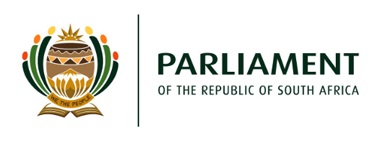Cooperative Governance and Traditional Affairs (COGTA) Committee Commends Cultural, Religious and Linguistics (CRL) Rights Commission for Efforts to Safeguard Cultural, Religious and Linguistic Rights
The Portfolio Committee on Cooperative Governance and Traditional Affairs on Friday reaffirmed its support for the Cultural, Religious and Linguistics (CRL) Rights Commission’s efforts to safeguard these rights.
The committee received briefings from the CRL Rights Commission and the Municipal Demarcation Board (MDB) on their strategic and annual performance plans. The MDB’s mandate includes, among other things, the delimitation of municipal wards after consulting the Independent Electoral Commission.
Committee Chairperson Dr Zweli Mkhize acknowledged the commission’s role in addressing harmful practices performed under the guise of religion. He also encouraged the commission in its ongoing efforts to confront psychological, physical and sexual abuse linked to such cases. “While we respect religious freedom in South Africa, these rights must be exercised in line with constitutional protections and human dignity,” he said.
The commission’s briefing follows the recent Eastern Cape High Court judgement, which cleared Nigerian pastor Timothy Omotoso of all charges, including sexual assault and human trafficking.
Welcoming the commission’s presentation, the Chairperson reaffirmed the importance of the commission’s work in protecting the rights of cultural, religious and linguistic communities and the crucial role this plays in nation-building and social cohesion.
The committee noted the challenges impacting the commission’s work, particularly budget constraints. It was encouraged by ongoing efforts to recognise and develop historically marginalised languages, such as SePulana (a language spoken by the Mapulana people in Limpopo and Mpumalanga) and isiMpondo (spoken by the AmaMphondo people in the Eastern Cape).
The committee also welcomed the continued focus on customary initiation practices and ensuring they conform to constitutional principles. The Chairperson stressed that there should be zero tolerance for illegal schools, mutilation, or loss of life in exercising this traditional custom. “There can be no acceptable number when it comes to mutilations or fatalities. Our goal must be zero in all respects. There is no acceptable threshold for such harms,” he said, stressing the need for stronger oversight, awareness and community education.
The committee also welcomed the shift in focus of the commission’s referral and oversight systems that now ensure matters brought before it are addressed, even when other departments are involved. Previously, the commission would refer matters to relevant departments.
Meanwhile, while welcoming the MDB’s presentation, the committee expressed concerns about the practicalities and impact municipal boundary determinations may have on communities. Highlighting that communities are often built on relationships and shared access to services, the Chairperson cautioned the Board against only relying on legal frameworks when making boundary determinations that may split communities and social networks. “The MDB must be sensitive to avoid dividing a settled cohesive community into different wards, municipalities, districts, and sometimes provinces as this practice may disrupt social stability and access to social amenities and centres for service delivery.”
Moreover, the committee sought concrete evidence of public consultation during demarcation. Members also called on the MDB to be more responsive to dissatisfaction in affected communities and asked for evidence that public education initiatives helped build public trust in the demarcation process.
Noting the budget constraints, the committee urged the MDB to build its institutional capacity and not solely rely on municipalities to do its work at the local level.
Distributed by APO Group on behalf of Republic of South Africa: The Parliament.



